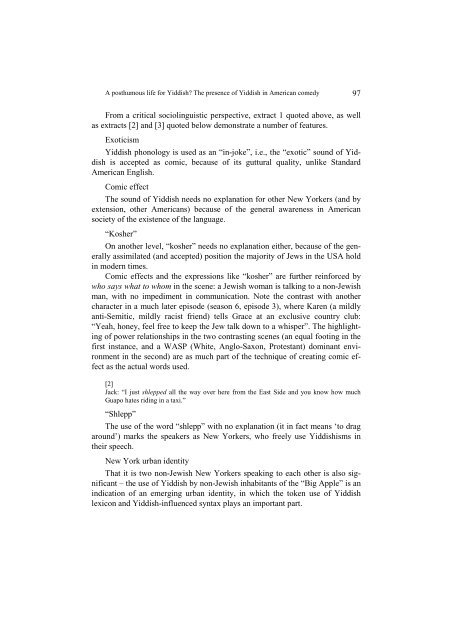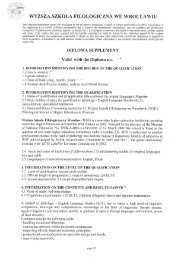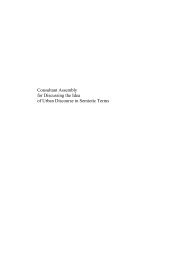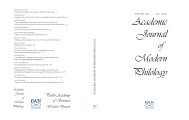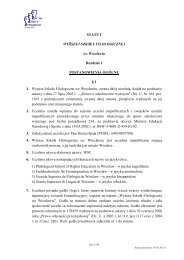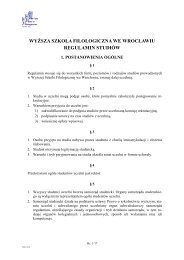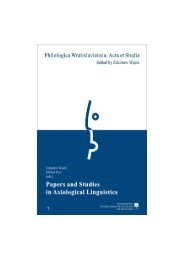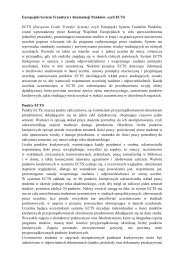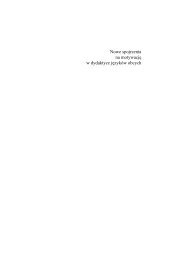s - Wyższa SzkoÅa Filologiczna we WrocÅawiu
s - Wyższa SzkoÅa Filologiczna we WrocÅawiu
s - Wyższa SzkoÅa Filologiczna we WrocÅawiu
You also want an ePaper? Increase the reach of your titles
YUMPU automatically turns print PDFs into web optimized ePapers that Google loves.
A posthumous life for Yiddish? The presence of Yiddish in American comedy 97<br />
From a critical sociolinguistic perspective, extract 1 quoted above, as <strong>we</strong>ll<br />
as extracts [2] and [3] quoted below demonstrate a number of features.<br />
Exoticism<br />
Yiddish phonology is used as an “in-joke”, i.e., the “exotic” sound of Yiddish<br />
is accepted as comic, because of its guttural quality, unlike Standard<br />
American English.<br />
Comic effect<br />
The sound of Yiddish needs no explanation for other New Yorkers (and by<br />
extension, other Americans) because of the general awareness in American<br />
society of the existence of the language.<br />
“Kosher”<br />
On another level, “kosher” needs no explanation either, because of the generally<br />
assimilated (and accepted) position the majority of Jews in the USA hold<br />
in modern times.<br />
Comic effects and the expressions like “kosher” are further reinforced by<br />
who says what to whom in the scene: a Jewish woman is talking to a non-Jewish<br />
man, with no impediment in communication. Note the contrast with another<br />
character in a much later episode (season 6, episode 3), where Karen (a mildly<br />
anti-Semitic, mildly racist friend) tells Grace at an exclusive country club:<br />
“Yeah, honey, feel free to keep the Jew talk down to a whisper”. The highlighting<br />
of po<strong>we</strong>r relationships in the two contrasting scenes (an equal footing in the<br />
first instance, and a WASP (White, Anglo-Saxon, Protestant) dominant environment<br />
in the second) are as much part of the technique of creating comic effect<br />
as the actual words used.<br />
[2]<br />
Jack: “I just shlepped all the way over here from the East Side and you know how much<br />
Guapo hates riding in a taxi.”<br />
“Shlepp”<br />
The use of the word “shlepp” with no explanation (it in fact means ‘to drag<br />
around’) marks the speakers as New Yorkers, who freely use Yiddishisms in<br />
their speech.<br />
New York urban identity<br />
That it is two non-Jewish New Yorkers speaking to each other is also significant<br />
– the use of Yiddish by non-Jewish inhabitants of the “Big Apple” is an<br />
indication of an emerging urban identity, in which the token use of Yiddish<br />
lexicon and Yiddish-influenced syntax plays an important part.


